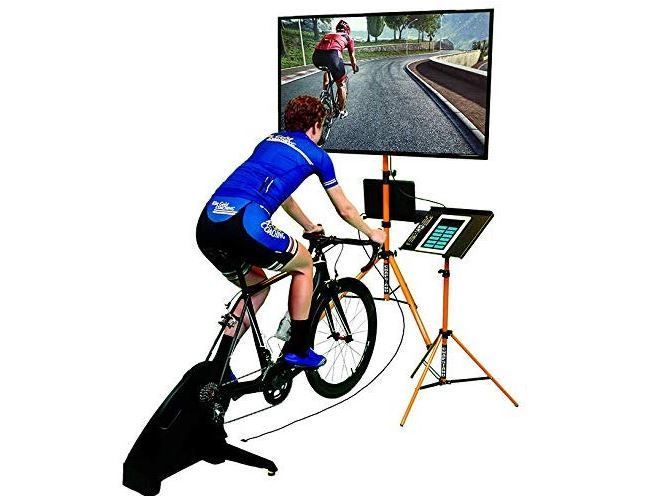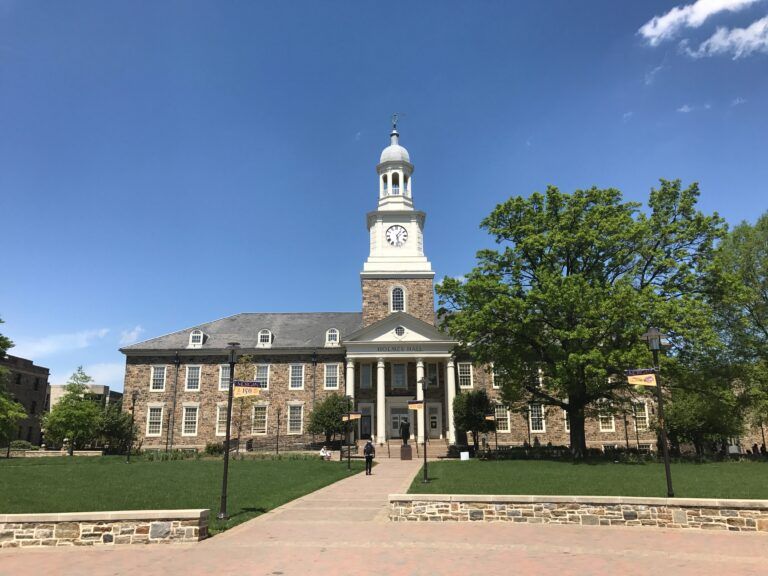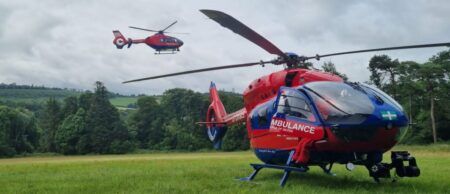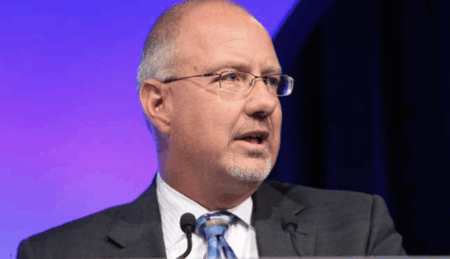Morgan State University (abvoe), Dept of Transportation & Urban Infrastructure Studies has installed a Forum8 cycling simulator at its Safety and Behavioral Analysis Center (SABA) in Baltimore, USA. The simulator will be used to carry out research designed to investigate the interactions between vehicle drivers and cyclists under varied road and traffic conditions to help improve safety amongst riders.
In 2018 857 cyclists were killed in the USA as a result of a road traffic accident. The SABA research project aims to find out what can be done to help prevent bicycle injuries and deaths, many of which can be avoided if motorists and cyclists follow the rules of the road and watch out for each other.
The team headed by Dr Mansoueh Jeihani, have already acquired a world-wide recognition for their research work into a range of specific driver behaviours including texting while driving, reactions to variable message signs (VMS) and driving when using GPS in variable traffic and weather conditions.
The new research project will record how drivers and bike riders interact with each other under a range of traffic conditions and scenarios in a simulated road network. Data captured during the trials, such as speed, steering-control and braking, will be made available in a detailed report at the end of the project to help improve road safety training for drivers and bikers as well for highway engineers responsible for improving road layouts and signage.
The bicycle simulator has been installed in the SABA laboratory linked to the University’s two existing Forum8 full-scale, high fidelity driving simulators and an eye-tracking system. The driving simulators comprise a cockpit designed to replicate a real production driving seat with all the usual controls necessary for the operation of a vehicle; steering wheel, hand brake, throttle, signal-light controllers, emergency blinkers, and brake pedals as well as an automatic gear stick.

The cockpit is surrounded by three monitors that project front and peripheral views of the 3D simulated road network and wider cityscape generated by Forum8’s interactive VR Design Studio (aka UC-win/Road) software.
The bicycle simulator comprises a standard, fixed road bike with a single monitor that displays the same simulated road network as projected onto the drive simulator screens, providing the rider with a view of a realistic 3D environment including roads, bridges, signage, buildings, pedestrians, and landscape details.
Networked together the simulators are centrally managed from the researchers control desk and both the driver and the biker are able to choose their own routes from the origin to the destination, interacting with each other in real-time from their individual perspectives to replicate an experience as close to reality as possible.
The VR Design Studio software enables the researchers to create and edit the entire road network elements including road alignments, intersection design, traffic signals, cross sections, roadside signs, terrain setup, day or night-time, weather, road-surfaces, and traffic generation.
In order to fully investigate the interactions between different individuals under the full range of potential traffic scenarios SABA is recruiting a representative sample of at least 30 participants from the Baltimore area who will act as the drivers and riders for the duration of the project.
 “Key features for us in choosing the cycle simulator include the ability to link the different simulators in a shared network as well as the range of third party software plugins that is supported by VR Design Studio,” says Dr. Mansoureh Jeihani of the SABA. “When we needed to enhance the range of traffic flow options, we were able to seamlessly integrate it with the traffic micro-simulation software S-Paramics as well as the latest eye-tracking software to add further important dimensions to our research.”
“Key features for us in choosing the cycle simulator include the ability to link the different simulators in a shared network as well as the range of third party software plugins that is supported by VR Design Studio,” says Dr. Mansoureh Jeihani of the SABA. “When we needed to enhance the range of traffic flow options, we were able to seamlessly integrate it with the traffic micro-simulation software S-Paramics as well as the latest eye-tracking software to add further important dimensions to our research.”





